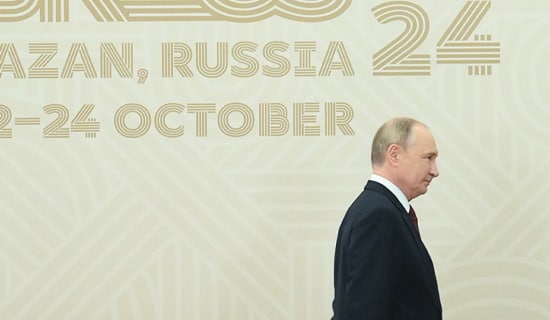In an article posted on the liberal website www.metransparent.com, reformist Yemeni journalist Dr. Elham Mane'a came out against the appointment of Muslim American writer Dalia Mogahed to Obama's Interfaith Advisory Board. Mane'a claimed that Mogahed purported to represent all Muslims, but in fact represented only a limited, extremist view of Islam. This, she said, was reflected in Obama's statement in his Cairo speech about the Muslim women's right to wear the hijab.
Following are excerpts from the article by Mane'a: [1]
Obama is Receiving One-Dimensional Advice on Islam
"The report that Dalia Mogahed has been appointed to the Advisory Council on Faith-Based and Neighborhood Partnerships, which advises U.S. President Barack Obama, filled me with anxiety... To be honest, I was anxious for two reasons.
"First, [when] someone who grew up in a Western environment decides to don the hijab, it is usually [a sign that they are] influenced by a religious ideology [even] more conservative than the one prevailing in the Arab countries...
"The second reason was the enthusiasm shown by the media outlets funded by the Arab Saudi kingdom, as well as the message of congratulations issued by a [certain] Muslim-American organization known for its affiliation with the Muslim Brotherhood. The numerous voices welcoming the appointment puzzled me, and scared me.
"Still, I tried to distance myself from my own opinions. I said to myself, 'Wait. Only time will reveal [Mogahed's] orientation and views.'
"Then came Obama's speech at Cairo University, in which he addressed the Muslim world. I was generally pleased with the speech - except for one brief statement... Obama was so proud of the freedoms granted to Muslims in the U.S. that he urged his government to 'go to court to protect the right of women and girls to wear the hijab, and to punish those who would deny it.'
"I understood then that Obama had heard [only] one opinion on this matter, which purports to exclusively reflect 'what Muslim men and women think' and 'what Muslim men and women want.' In actuality, this view represents [only Dalia Mogahed's] perception of Islam, which is an extremist Islamic perception...
"For the U.S. government to go to court to protect the right of [Muslim] girls to wear the hijab is a puzzling act, not to say a repulsive one - since it is not [an act of] protecting human rights. [Rather, it is tantamount to] participation in violating these young women's rights.
"How many of us have seen girls of six or nine wearing the hijab? When did we begin to see such sights as a little girl covered from head to toe? In the 1950s, 1960s and 1970s, would we have dreamt of wrapping up little girls [this way]? Of course not! Even today, people in urban Arab societies have never heard of a six-year-old who has to wear a hijab. [And this], my friends, is because little girls want to play, run and jump around, not to be swaddled in a length of cloth that chokes them and restricts their every movement.
"Sisters, let's use our intelligence. Those who defend the wearing of the hijab wish to conceal the feminine side of women, so as to avoid arousing desire in men, whose urges, [they believe], bring them to disaster.
"Even if we accept this bestial perception of human beings... logic dictates that it does not apply to little girls... Girls are not marriageable women. I ask you to keep to yourselves the opinions of [various] clerics regarding [the permissibility] of child marriages - because [these opinions] are shameful, despicable and humiliating for [the clerics who hold them] and for those who accept them.
"The rising tide of political Islam, and the popular wave of extremist Islam, which have spread in certain Muslim circles in the West, have pushed [Muslims] to such radicalism that they fail to see any great difference between a child and a woman... Anything female is dangerous and must be covered and wrapped up in a shroud...
"That is why President Obama's statement was unfortunate. The man [actually] boasted that his own government was violating the rights of children in his society. And this statement... reflected the perception of his advisor [Dalia Mogahed]..."
Mogahed's Book Is Not Credible
"I looked for the book that made Mogahed famous - an English-language book titled Who Speaks for Islam? (New York, 2007). The book presents a field study by [Dalia Mogahed] and her colleague John Esposito, conducted in the framework of the Gallup Organization, which claimed to reflect the opinions of more than one billion Muslims from numerous countries...
"I do not know what you think, sisters, but I work in the field of scientific research, and I do not think it possible for a survey to reflect the opinions of more than one billion people. Whoever makes such a claim is not only exaggerating, but is disregarding the very [principles] of research.
"I searched the book for [a definition of] the term 'Shari'a'... I found that [the authors] defend the Shari'a by explaining that there is confusion between this concept and the concept of Islamic law. The Shari'a, they say, is 'a [moral] compass reflecting principles valid in any era, which cannot be changed,' while Islamic law, [or] jurisprudence, is 'a map that must conform to this compass.'
"Considering this distinction between Shari'a and Islamic law, I was surprised to find that the section on women's rights included no discussion of the personal status laws in Arab [countries]. According to the Arab Human Development Report for 2005, [these laws] must be amended in order to improve the [status] of Arab women, who are currently in a state of backwardness. These laws are based on Koranic texts, so, according to [Mogahed's] own approach, they are part of the Shar'ia. [However, these laws] perpetuate the discrimination against women within the family.
"Since these [laws] are oppressive according to our present perception of human rights, they are by definition principles that [reflect the norms of] the time in which they appeared, and [therefore] can be changed so as to guarantee the right of women to dignity and independence. This means that the Shari'a can be changed..."
Obama Is Ignoring the Diversity of Views among Muslims
"The strangest thing is that, in launching a dialogue with the Muslim world, U.S. President Obama chose an [advisor] who does not express the diversity of opinions and positions in Muslim countries. On the contrary - he chose [one] who says, 'this is Islam, and this is the way Muslim men and women are,' instead of saying 'this is the way I perceive Islam, and this is what I believe Muslim men and women think...'
"I would have been happy if the U.S. president had appointed more than one [Muslim] figure to his advisory council, and not only Dalia Mogahed... who, in her book, purports to speak for [a billion Muslims]... The big concern is that Obama, who does not want to be like [former U.S.] president Bush with his one-dimensional views, will adopt the opposite type of one-dimensional view..."
Endnote:
[1] www.metransparent.com, July 1, 2009.





